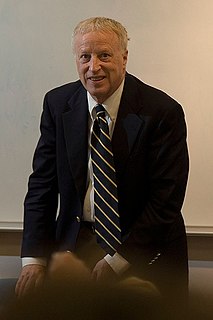A Quote by Milton Friedman
There is not a line in 'The Wealth of Nations' that is not still applicable to this day.
Quote Topics
Related Quotes
We are free today substantially, but the day will come when our Republic will be an impossibility. It will be an impossibility because wealth will be concentrated in the hands of a few. A Republic cannot stand upon bayonets, and when the day comes when the wealth of the nation will be in the hands of a few, then we must rely upon the wisdom of the best elements in the country to readjust the laws of the nations to the changed conditions.
Some time ago a little-known Scottish philosopher wrote a book on what makes nations succeed and what makes them fail. The Wealth of Nations is still being read today. With the same perspicacity and with the same broad historical perspective, Daron Acemoglu and James Robinson have retackled this same question for our own times. Two centuries from now our great-great- . . . -great grandchildren will be, similarly, reading Why Nations Fail.
All cultures forged by nations—the noble indigenous past of America, the brilliant civilization of Europe, the wise history of Asian nations, and the ancestral wealth of Africa and Oceania—are corroded by the American way of life. In this way, neoliberalism imposes the destruction of nations and groups of nations in order to reconstruct them according to a single model. This is a planetary war, of the worst and cruelest kind, waged against humanity.
Nations are political and military entities, and so are blocs of nations. But it doesn't necessarily follow from this that they are also the basic, salient entities of economic life or that they are particularly useful for probing the mysteries of economic structure, the reasons for rise and decline of wealth. Indeed, the failure of national governments and blocs of nations to force economic life to do their bidding suggests some sort of essential irrelevance.
Human nature being what it is, peace must inevitably be a relative condition. The essence of life is struggle and competition, and to that extent perfect peace is an almost meaningless abstraction. Struggle and competition are stimulating, but when they degenerate into conflict it is usually both destructive and disruptive. The aim of political institutions like the United Nations is to draw the line between struggle and conflict and to make it possible for nations to stay on the right side of that line.




































